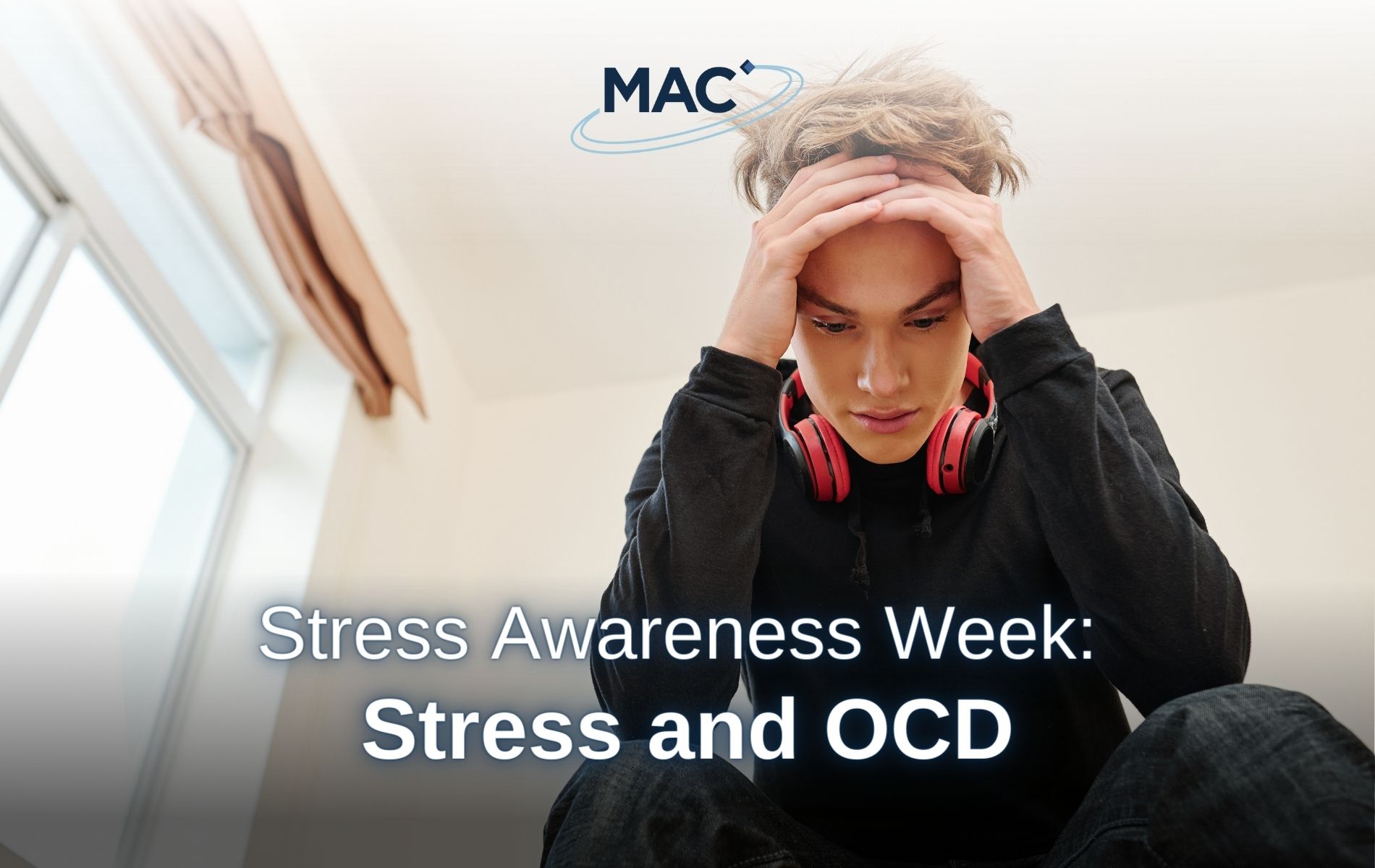Stress is something that affects us all, but stress can be exacerbated for someone living with a mental health condition like obsessive-compulsive disorder (OCD).
International Stress Awareness Week is organised every year by the International Stress Management Association: this year the organisation celebrates the 25th anniversary of Stress Awareness Week. The campaign aims to raise awareness of stress across the globe and improve the ways in which stress is managed in the workplace and in our personal lives1.
OCD is a mental health condition characterised by two primary components: obsessions and compulsions. Obsessions typically manifest as intrusive, distressing thoughts, images, or urges that repeatedly enter a person’s mind. These thoughts are often irrational and can vary widely, from fears of contamination to concerns about harm coming to loved ones. Compulsions, on the other hand, are repetitive behaviours or mental acts that individuals with OCD feel compelled to perform to alleviate the anxiety caused by their obsessions, however, this relief is only temporary.
An estimated three-quarters of a million people are living with and affected by OCD in the UK2.
The relationship between OCD and stress is intricate and cyclical. It begins with the obsessions, which trigger intense anxiety. These obsessions are often unwanted and uncontrollable, making the individual feel powerless. This sense of powerlessness is a significant source of stress, as individuals desperately seek relief from their intrusive thoughts.
As for the compulsions, as individuals continue to perform them to attempt to alleviate the impact of intrusive, obsessive thoughts, their daily lives become increasingly disrupted. Simple tasks like leaving the house, going to work, or maintaining relationships can become daunting and time-consuming endeavours. This disruption leads to added stress, as individuals struggle to manage their OCD alongside their daily responsibilities.
An individual’s work life, for instance, could be greatly impacted by OCD and stress. Research conducted with people living with OCD found that 72% of respondents were more likely to be unemployed on a long-term basis, compared to those without the condition3.
The stress caused by OCD isn’t limited to the overt symptoms. There’s also a hidden toll on an individual’s emotional and mental well-being. People with OCD often experience feelings of shame and guilt due to their intrusive thoughts and concurrent behaviours. They may feel embarrassed to discuss their condition with others, leading to isolation, a sense of being misunderstood, and further stress.
The impact of stress on developing OCD should also be noted. Although the exact causes for OCD differ from person to person, experiencing an incredibly stressful event could result in that person developing the mental health condition.
In one study, 61% of participants who were living with OCD had experienced stressful life events, including traumatic experiences, before onset4.
Likewise, stressful periods in people’s lives could also cause a flare up of OCD symptoms for people already living with the condition.
Here at MAC, we want to improve the quality of life for those living with OCD by contributing to the development of more effective, better-tolerated treatment options for the condition through groundbreaking clinical trials.
If you are currently living with OCD or OCD symptoms that are impacting your daily life and feel that your current antidepressant medication is not fully helping, you could be eligible to take part in the latest OCD clinical trial at MAC Clinical Research
The trial is investigating a medication that is thought to target a different signalling pathway in the brain to current OCD treatments, which may help to control obsessive or compulsive behaviours. With your participation, you may be able to contribute to scientific research, which could lead to a new medicine to help people living with OCD.
The trial is taking place at MAC clinics in Lancashire, Greater Manchester, Merseyside, South Staffordshire, South Yorkshire, Teesside, and West Yorkshire.
To be eligible, you must:
- Be aged between 18 and 65 years old.
- Have had OCD or OCD symptoms for at least 1 year that is affecting your everyday life.
- Feel that your current OCD medication (antidepressant) is not fully working.
Eligible participants may receive up to £490 for their time and commitment to the study, along with reasonable travel costs. If the treatment works, you may be allowed to continue taking it (known as an open-label extension) for up to 48 weeks. For more information on how you can get involved, visit our OCD Research page.
1 ISMA – International Stress Awareness Week 30 October – 3 November
2 NHS Inform – Obsessive compulsive disorder (OCD)
3 Psychosocial Medicine – Labour market marginalisation in obsessive–compulsive disorder: a nationwide register-based sibling control study
4 Frontiers in Psychiatry – Impacts of Stressful Life Events and Traumatic Experiences on Onset of Obsessive-Compulsive Disorder




